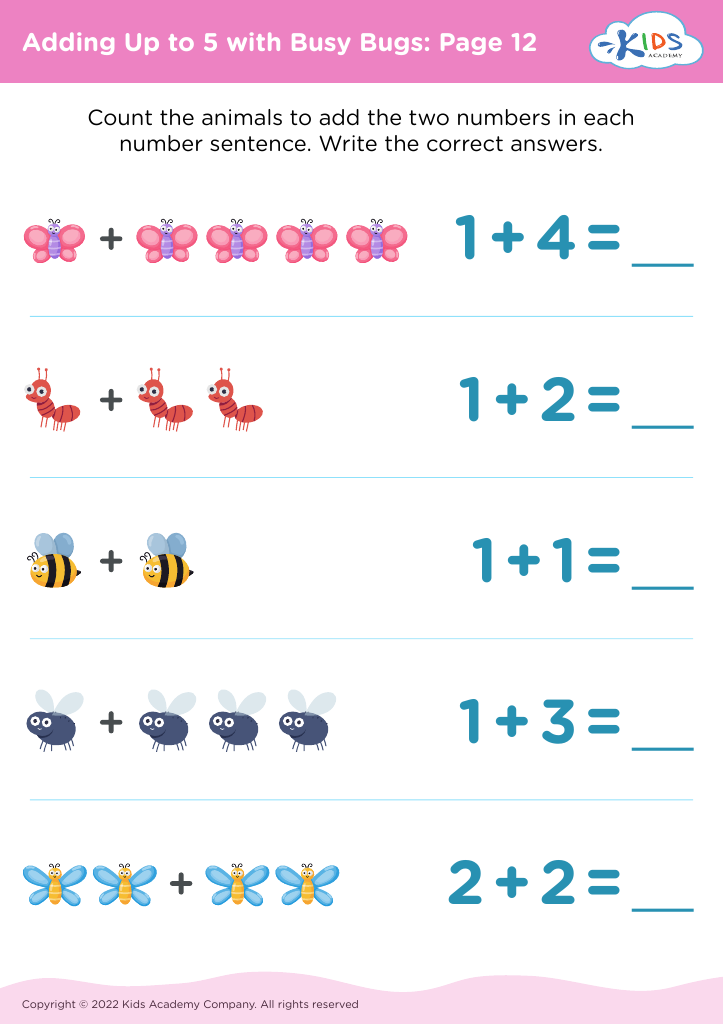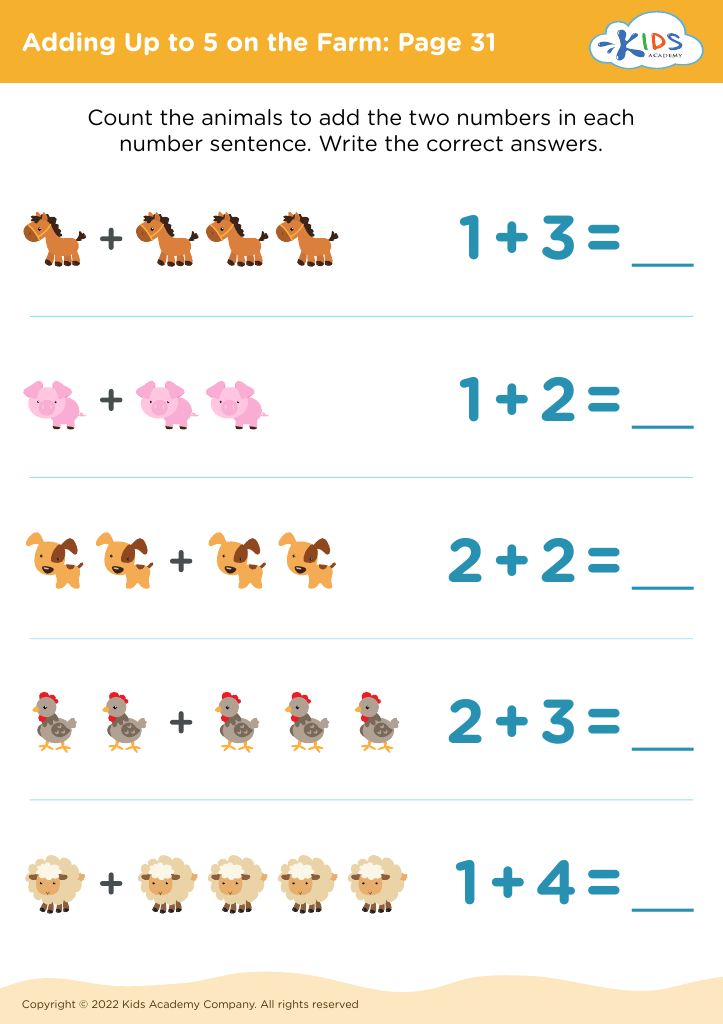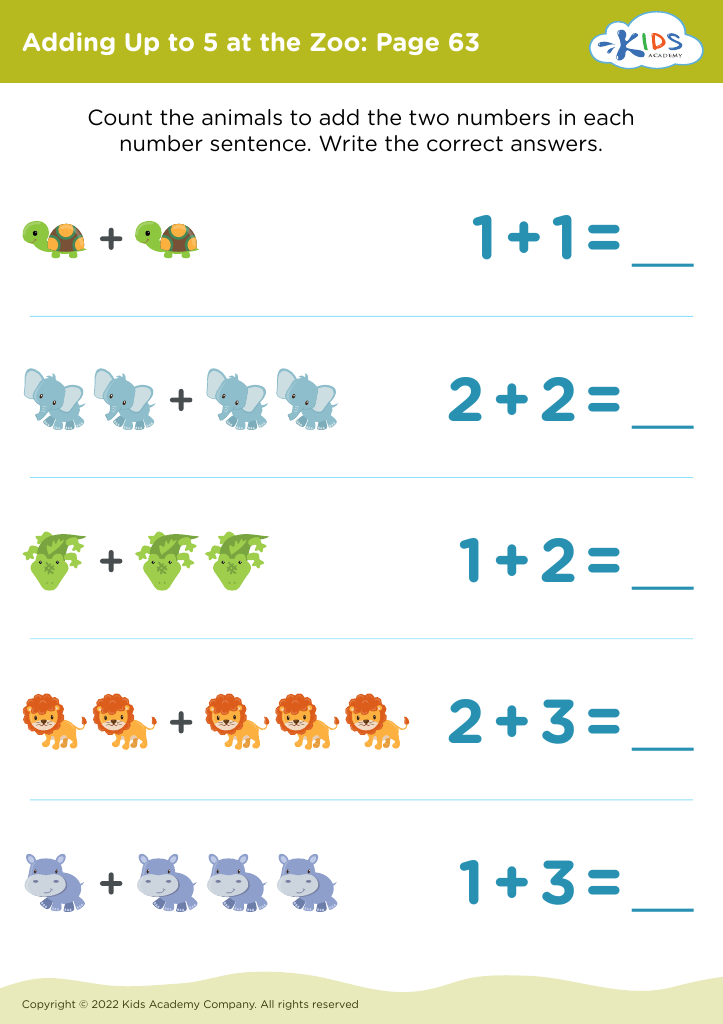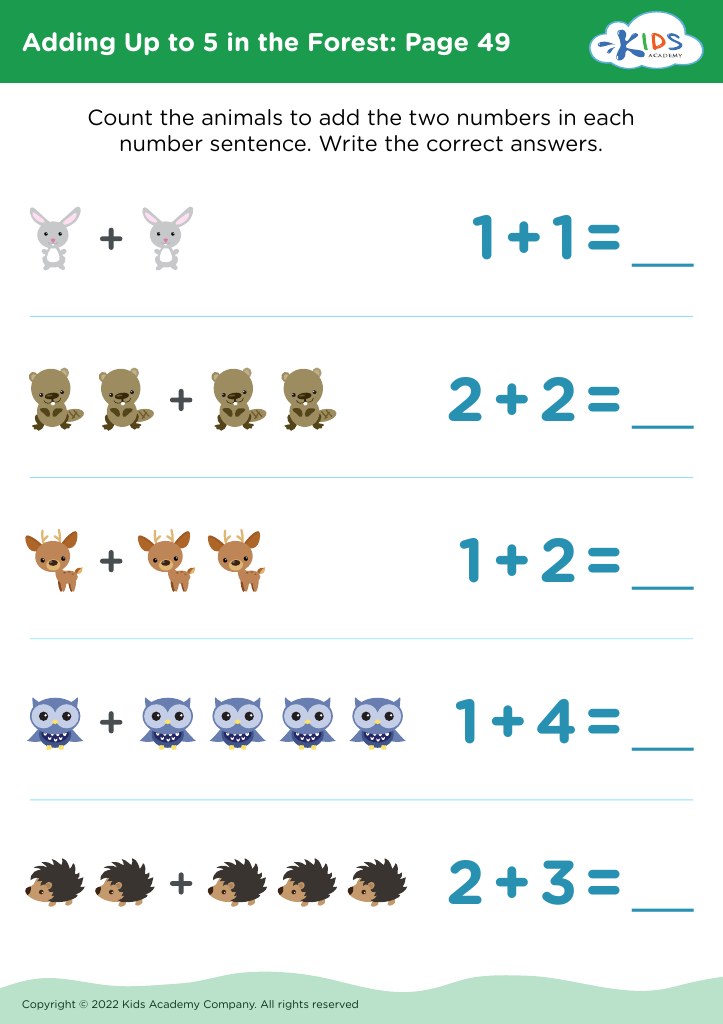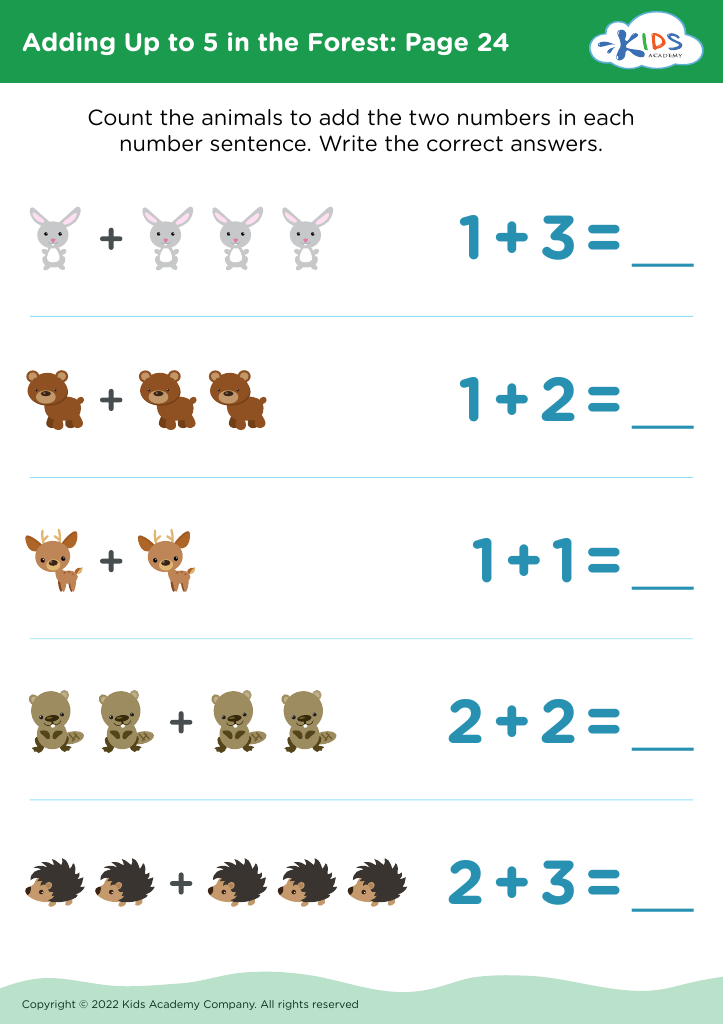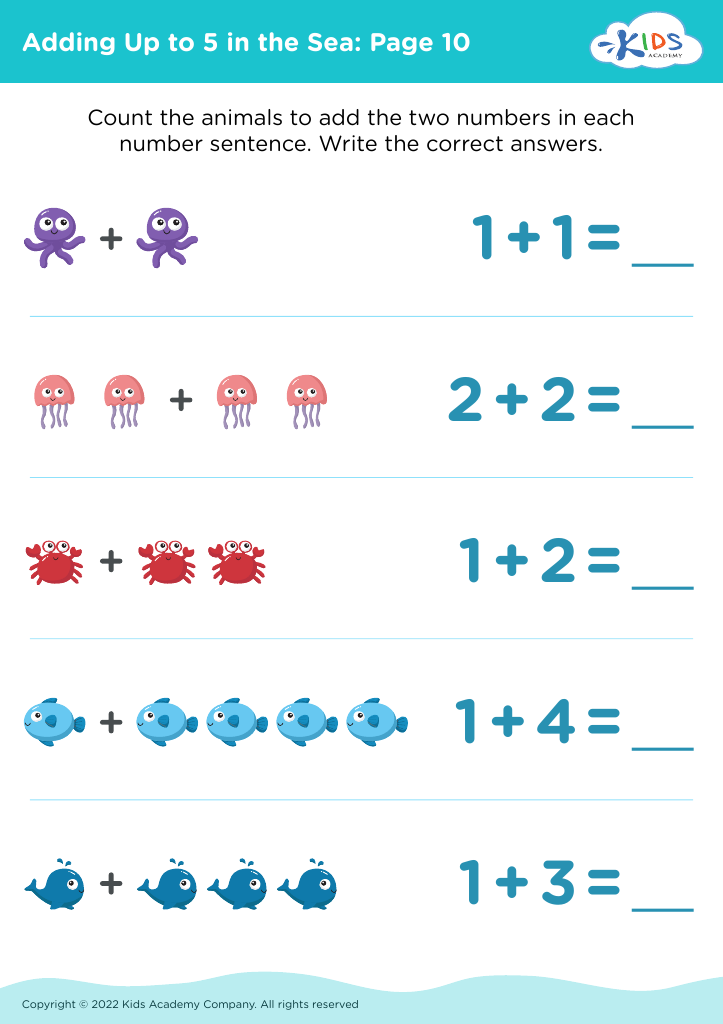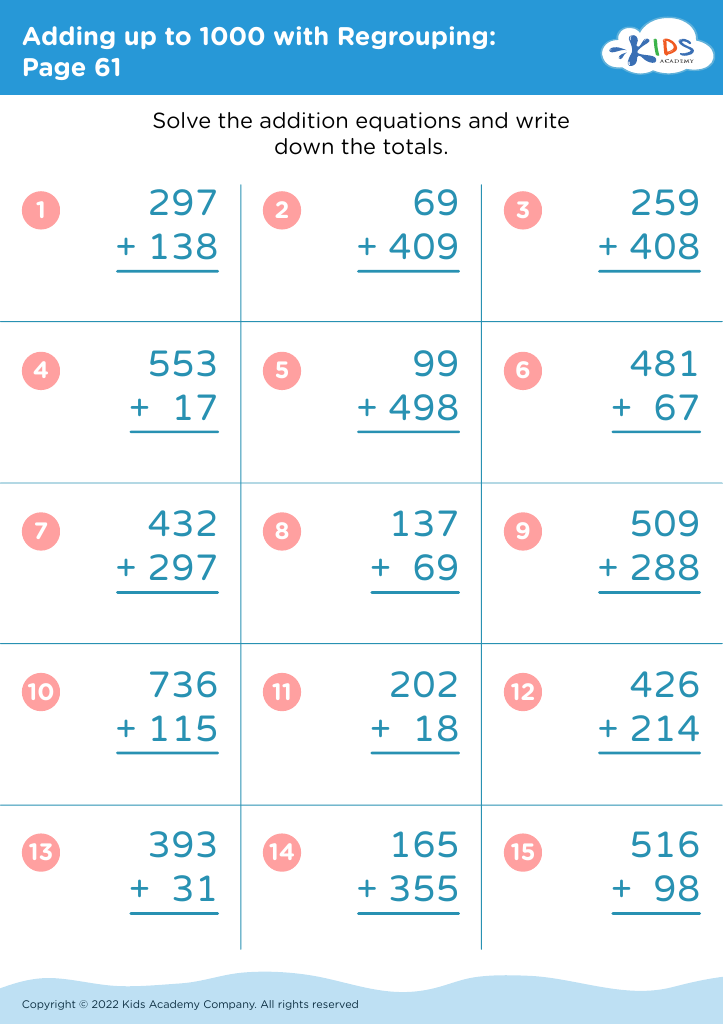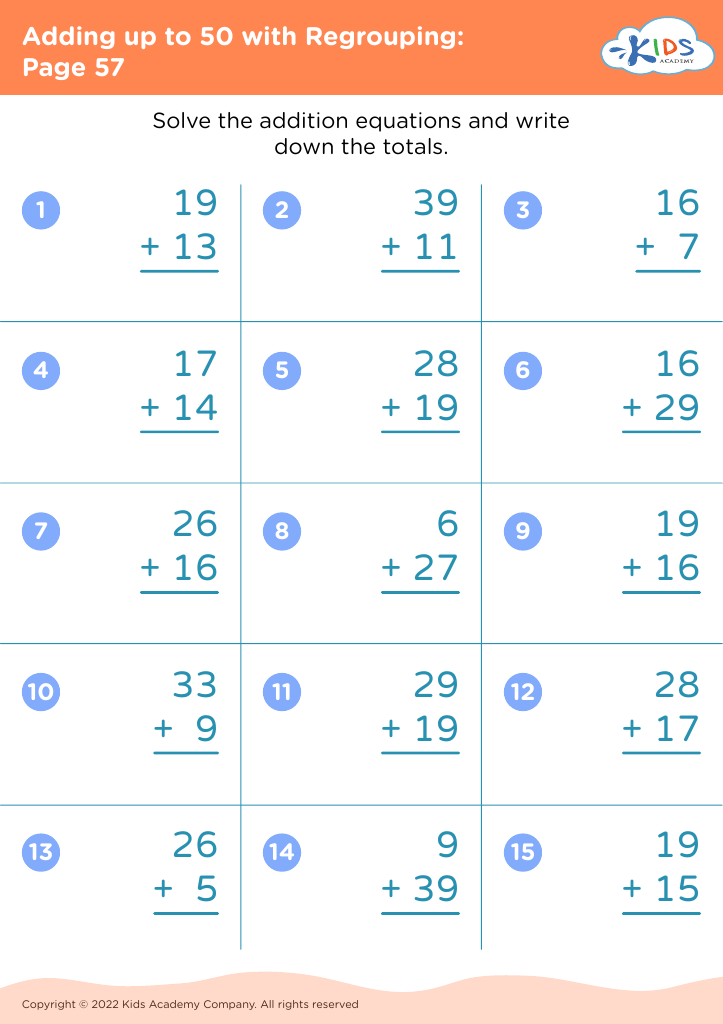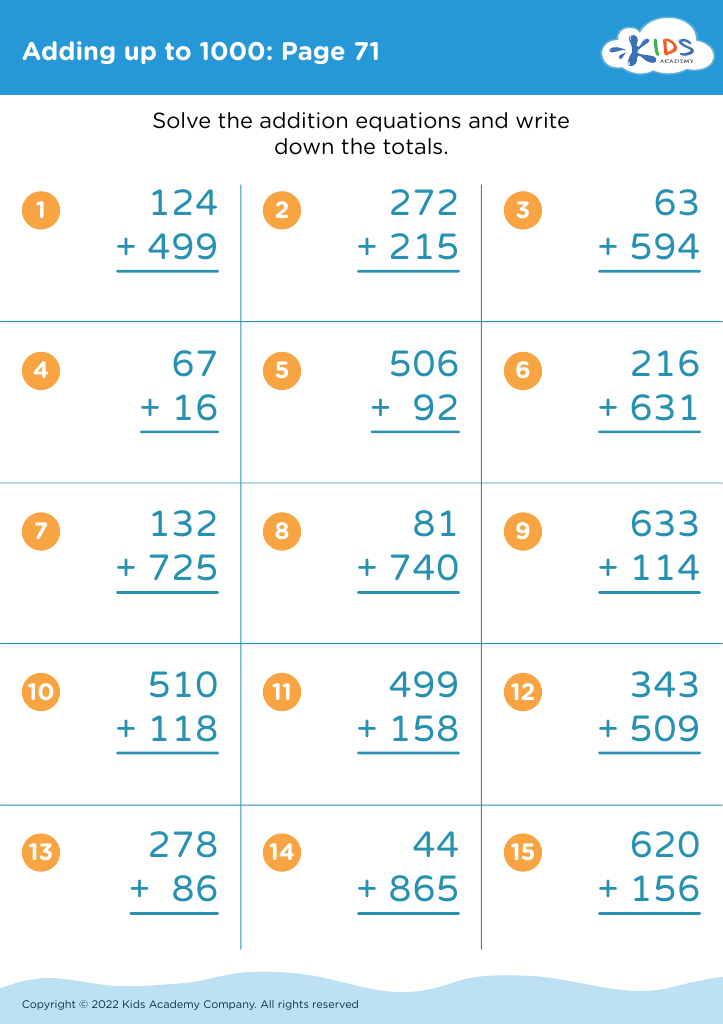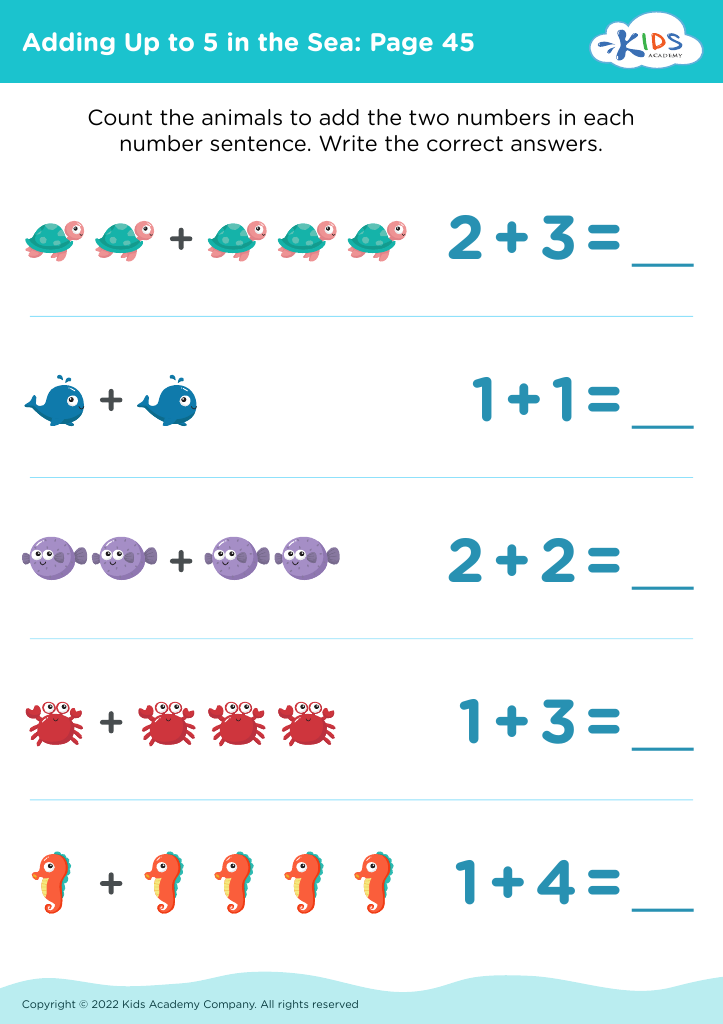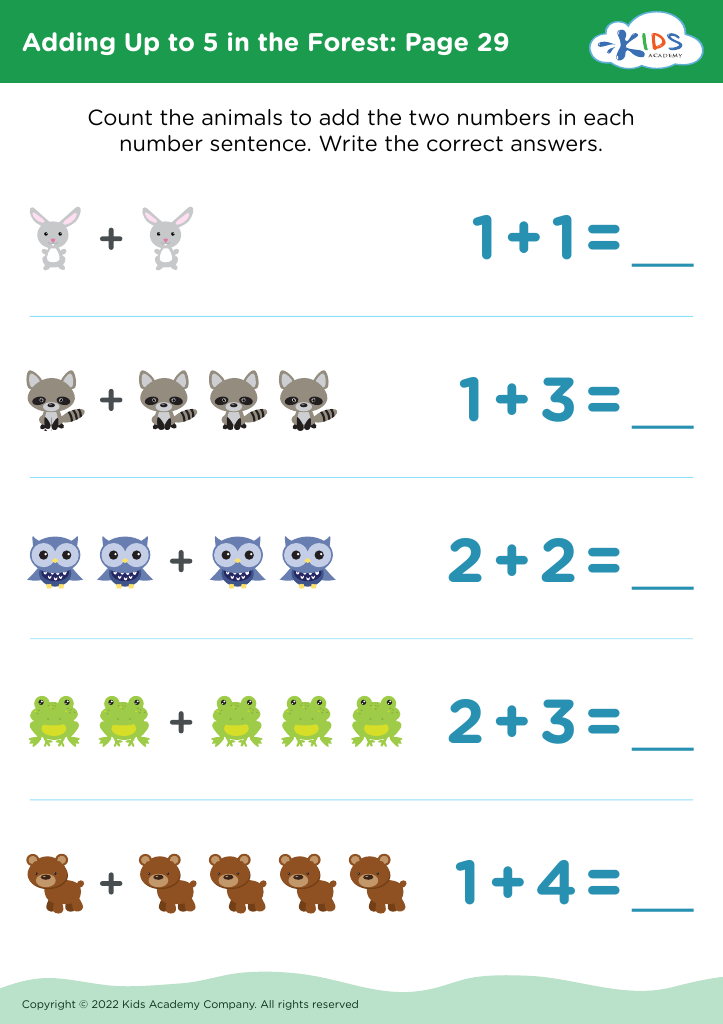Problem-solving abilities Addition Worksheets for Ages 3-7
29 filtered results
-
From - To
Enhance your child’s problem-solving skills with our engaging Addition Worksheets designed specifically for ages 3-7. These printable resources offer fun and interactive activities that promote early mathematical understanding through problem-solving scenarios. Each worksheet is crafted to challenge young minds while fostering a love for learning. By tackling varied addition problems, children develop critical thinking skills essential for academic success. Our user-friendly format supports differing skill levels, ensuring every child can progress at their own pace. Explore the joy of learning with our addition worksheets and watch your child's confidence flourish as they master essential math concepts! Perfect for home or classroom use!
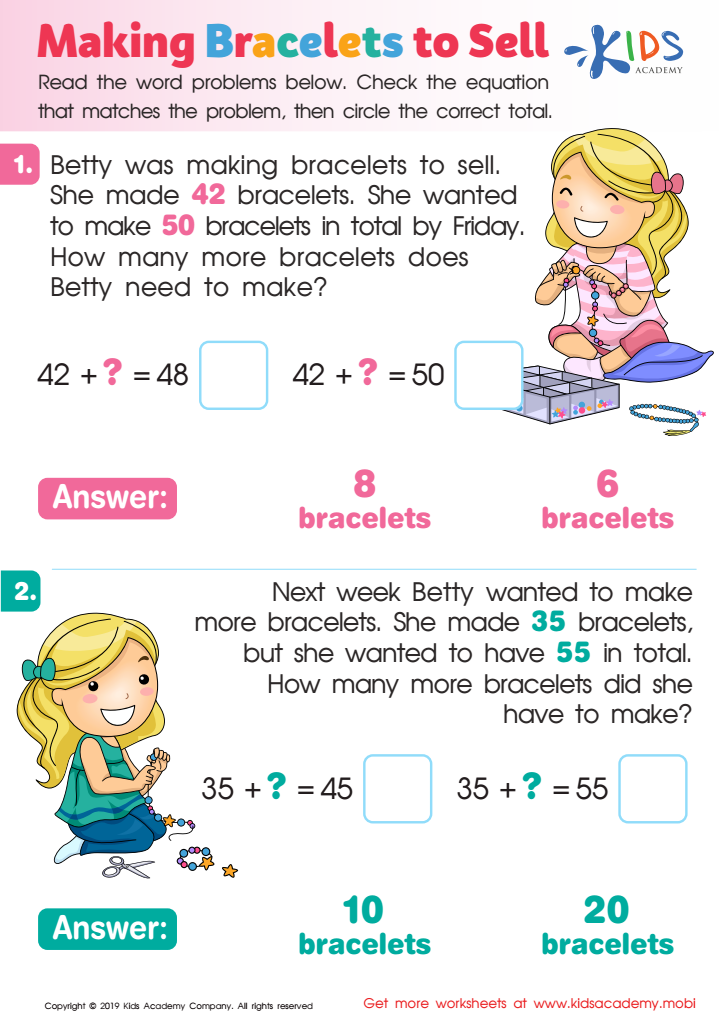

Making Bracelets to Sell Worksheet
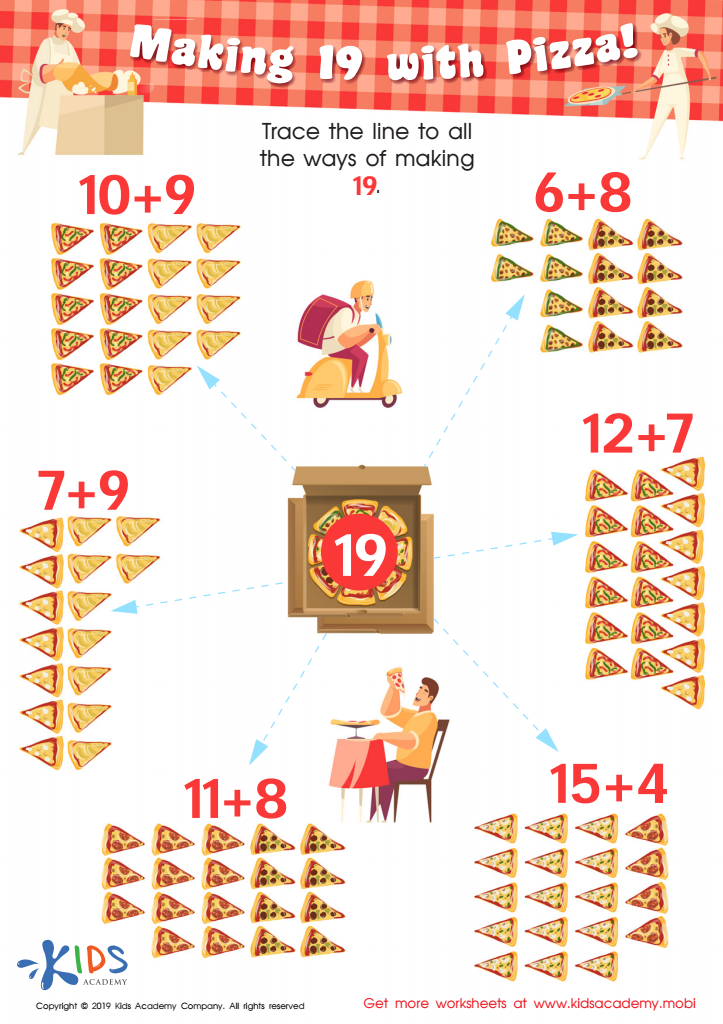

Making 19 with Pizza! Worksheet
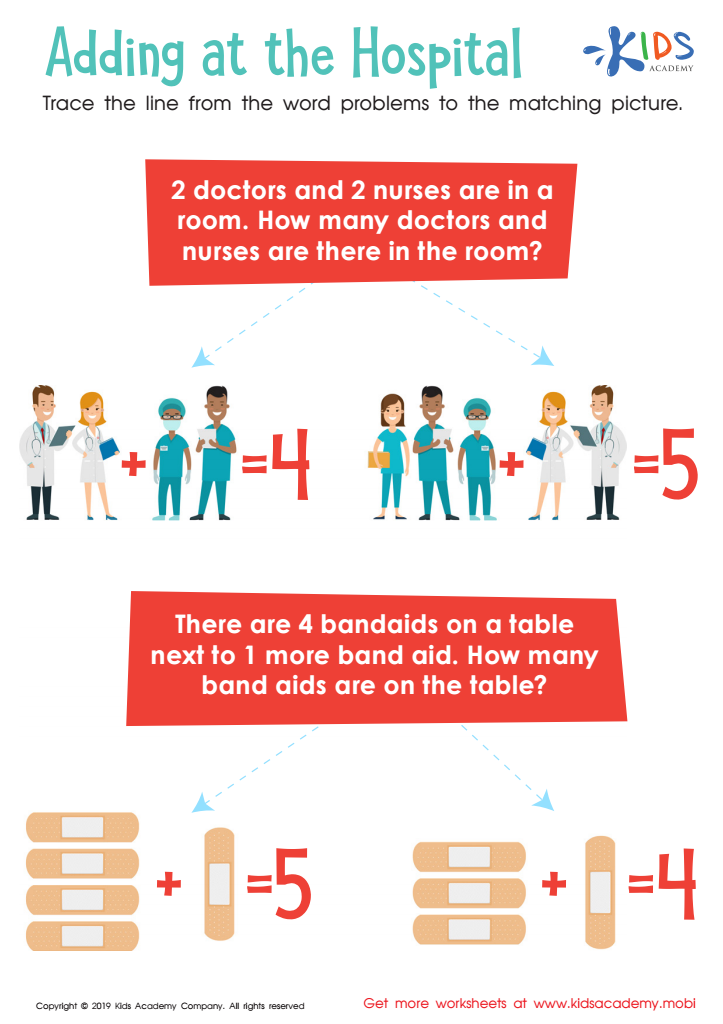

Adding at the Hospital Worksheet
Problem-solving abilities, particularly in addition, are crucial for children aged 3-7, as they form the foundation for critical thinking, numeracy skills, and overall cognitive development. In these formative years, engaging in addition-related problem-solving allows children to grasp abstract concepts, enhance their logical reasoning, and develop persistence when faced with challenges. By cultivating these skills early on, parents and teachers can promote a love for mathematics, fostering a positive attitude towards learning that can last a lifetime.
Additionally, mastering addition sets the stage for more complex mathematical concepts in later years, as it strengthens their understanding of patterns, relationships, and quantitative reasoning. Incorporating engaging activities, games, and hands-on learning into problem-solving fosters collaboration and communication among peers, enhancing social skills.
Moreover, children equipped with strong problem-solving abilities in addition can apply these skills beyond mathematics, aiding in everyday situations, such as budgeting and decision-making. Parents and teachers play a vital role by encouraging exploratory learning and offering support, ultimately empowering children to take initiative in their education. Recognizing the significance of early problem-solving in addition can lead to improved academic performance and increased self-confidence, laying a robust foundation for lifelong learning.
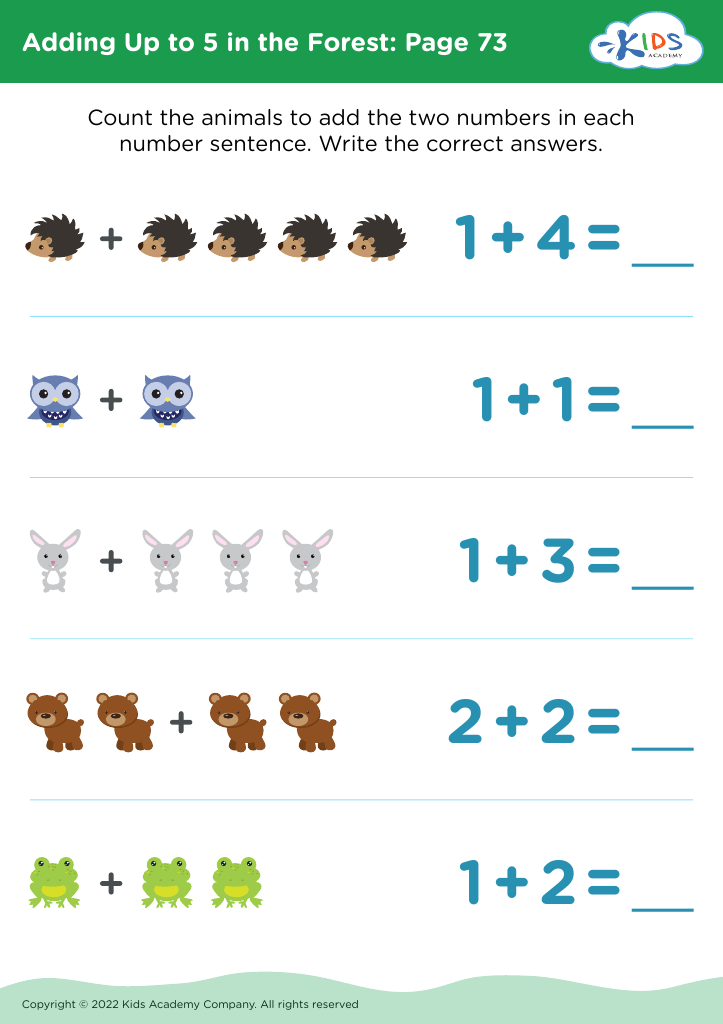

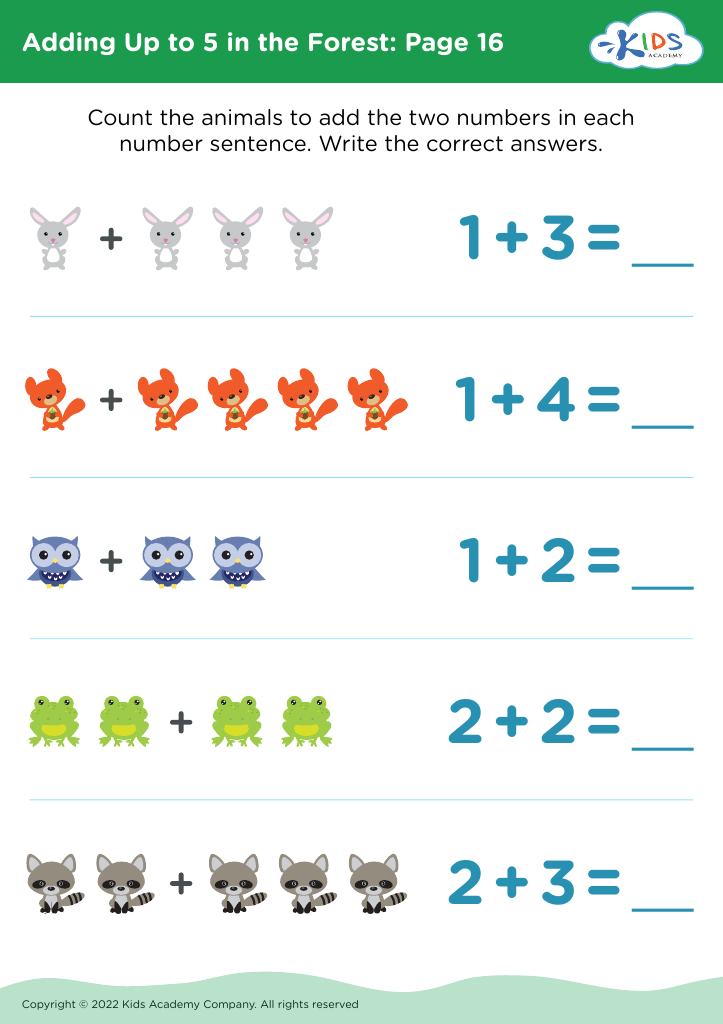
 Assign to My Students
Assign to My Students
